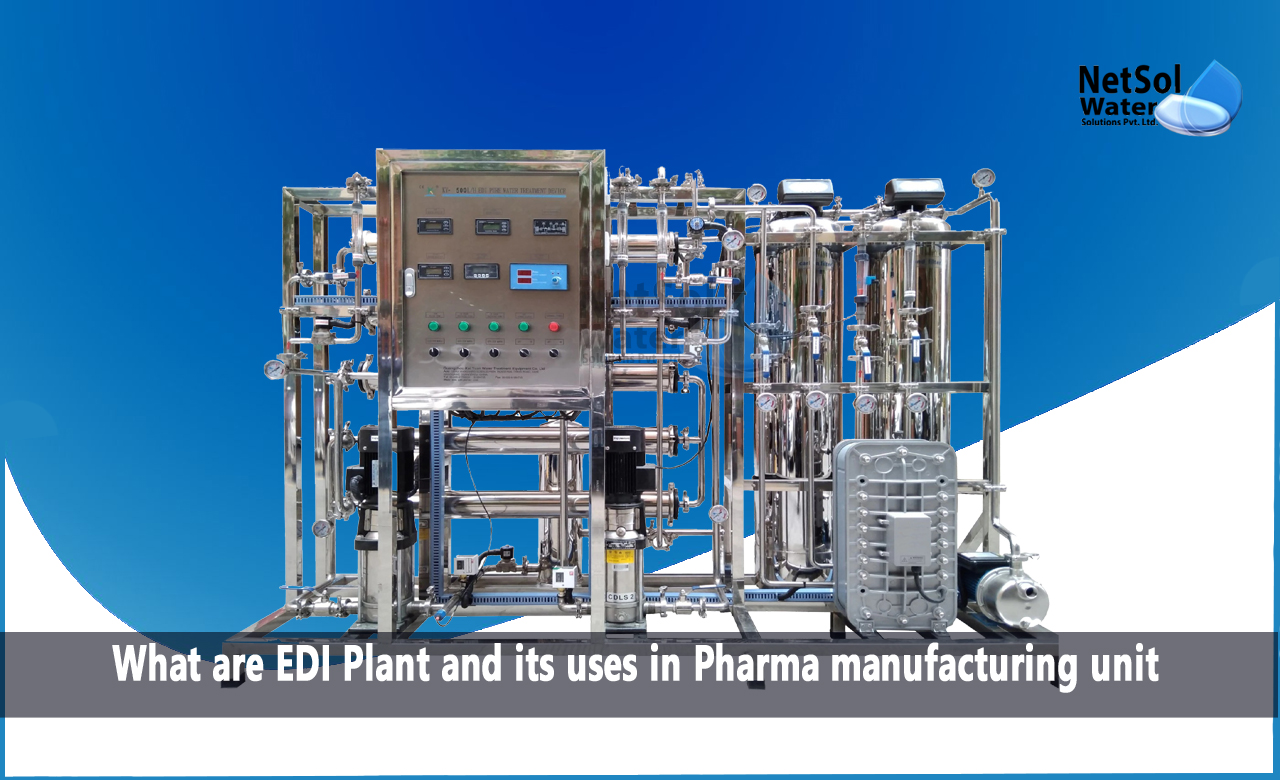The pharmaceutical industry is responsible for producing products that are used to treat, cure, or prevent diseases. The quality of these products is of utmost importance, and the water used in the manufacturing process plays a significant role in ensuring the safety and efficacy of the products. Impure water can lead to contamination of the products and can cause harm to the patients using them. Therefore, the production of high-purity water is critical in the pharmaceutical industry.
Electrodeionization (EDI) is a water treatment technology that has become increasingly popular in the pharma industry due to its ability to produce high-purity water without the use of hazardous chemicals or ion exchange resins.
Here, in this blog, we are going to discuss the need for EDI plants in pharma manufacturing units and the benefits they offer. So, let’s get going…
Why is an EDI Plant Needed in Pharma Manufacturing Units?
Pharmaceutical manufacturing requires high-purity water, which must be free of impurities such as bacteria, viruses, dissolved salts, and other contaminants. EDI technology is capable of producing high-purity water without the need for hazardous chemicals or ion exchange resins, making it an ideal solution for pharmaceutical manufacturing.
The water used in pharmaceutical manufacturing must meet specific quality standards to ensure the safety and efficacy of the products. Water with a high level of impurities can cause contamination of the products and lead to the failure of regulatory compliance. EDI technology can produce water that meets or exceeds the purity standards set by regulatory agencies such as the US FDA.
Benefits of EDI Technology in Pharma Manufacturing Units
- High Purity Water: EDI technology produces high-purity water that meets or exceeds the purity standards required for pharmaceutical manufacturing. This ensures that the quality of the pharmaceutical products is maintained and regulatory compliance is met.
- Cost-effective: EDI technology is a cost-effective solution for producing high-purity water. It eliminates the need for hazardous chemicals and ion exchange resins, reducing the cost of maintenance and disposal.
- Sustainable: EDI technology is a sustainable water treatment solution as it does not generate hazardous waste, making it an environmentally friendly option.
- Easy to Operate: EDI plants are easy to operate and require minimal maintenance, reducing downtime and increasing efficiency.
- Compact Design: EDI plants have a compact design, making them ideal for use in pharmaceutical manufacturing units where space is limited.
Conclusion
In conclusion, the pharmaceutical industry requires high-purity water that meets specific quality standards to ensure the safety and efficacy of its products. EDI technology is an ideal solution for producing high-purity water without the use of hazardous chemicals or ion exchange resins. EDI plants offer several benefits, including cost-effectiveness, sustainability, ease of operation, and a compact design. Investing in an EDI plant can help pharmaceutical manufacturing units meet regulatory compliance and maintain the quality of their products, ensuring the safety and health of consumers.
For any other support, inquiries, or product purchases, call on +91-9650608473 or email at enquiry@netsolwater.com



